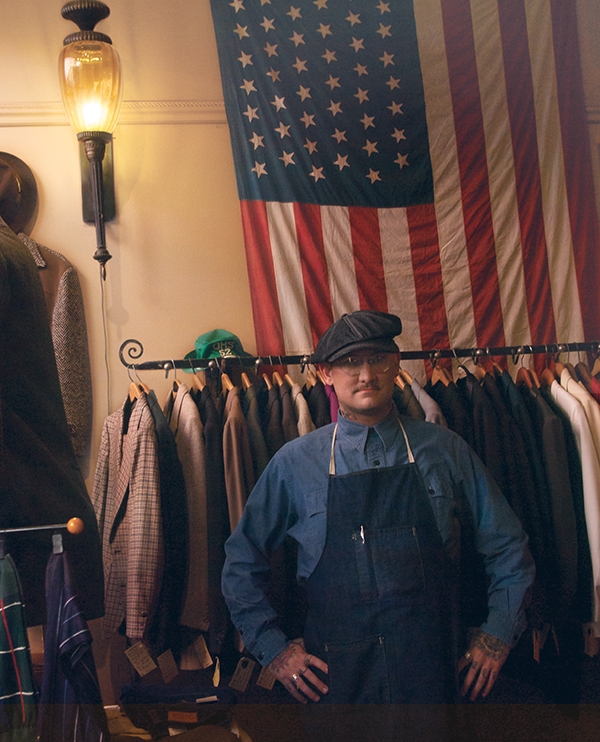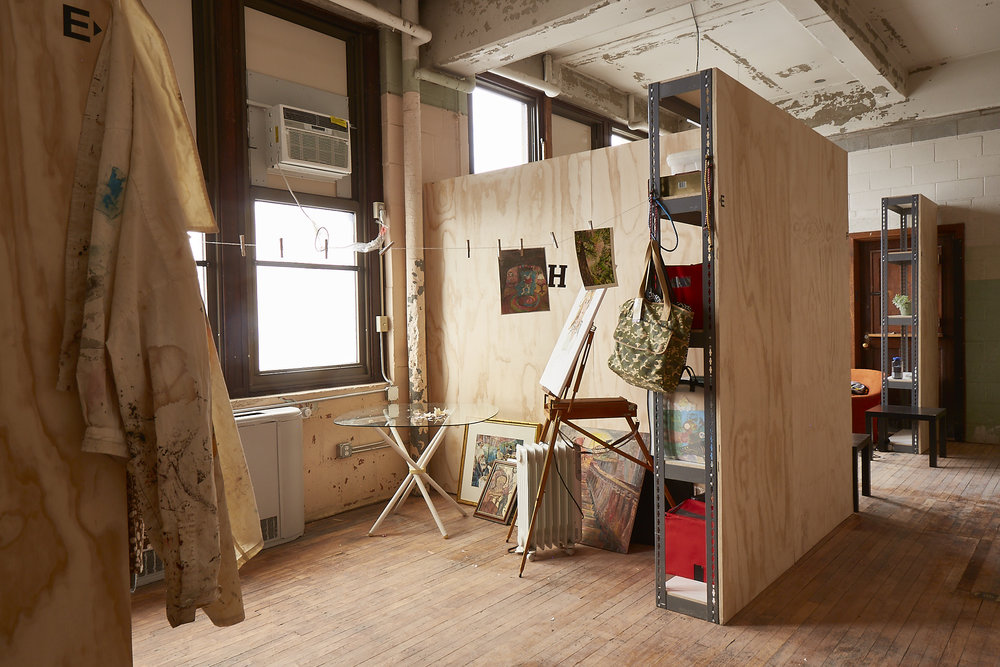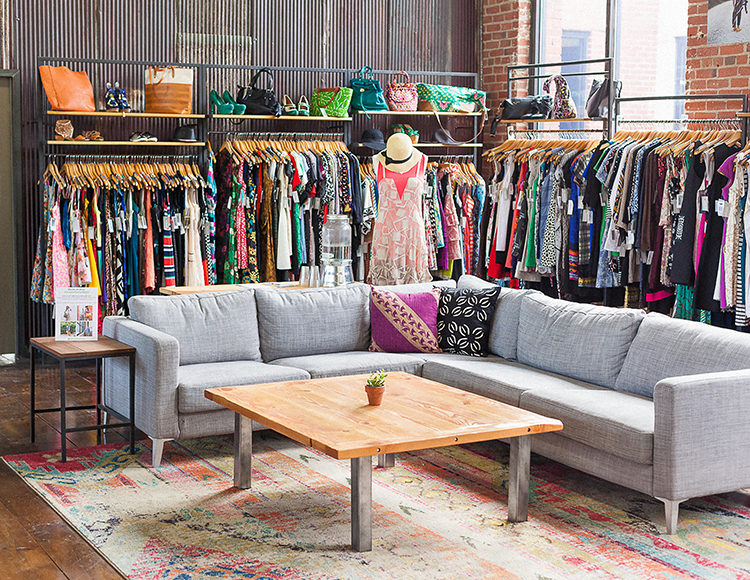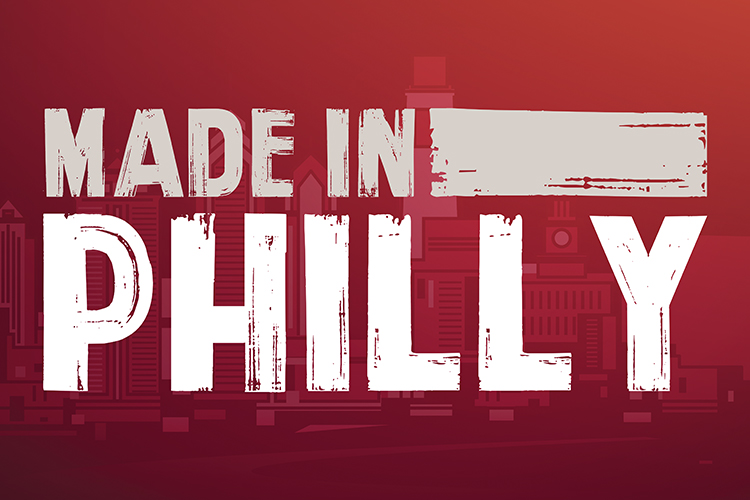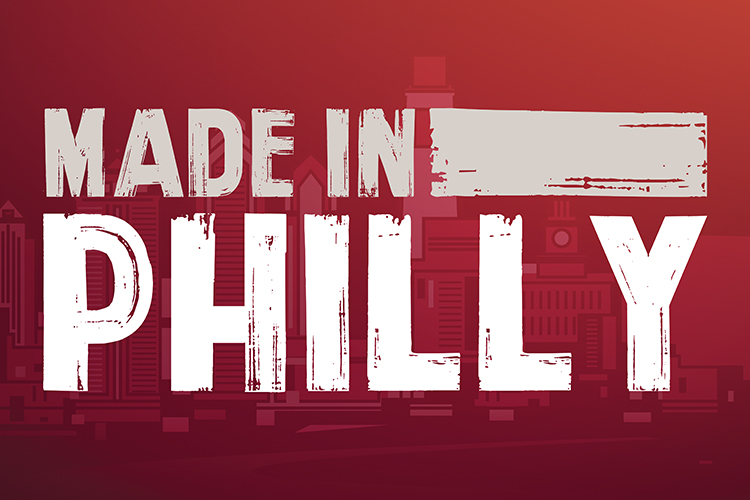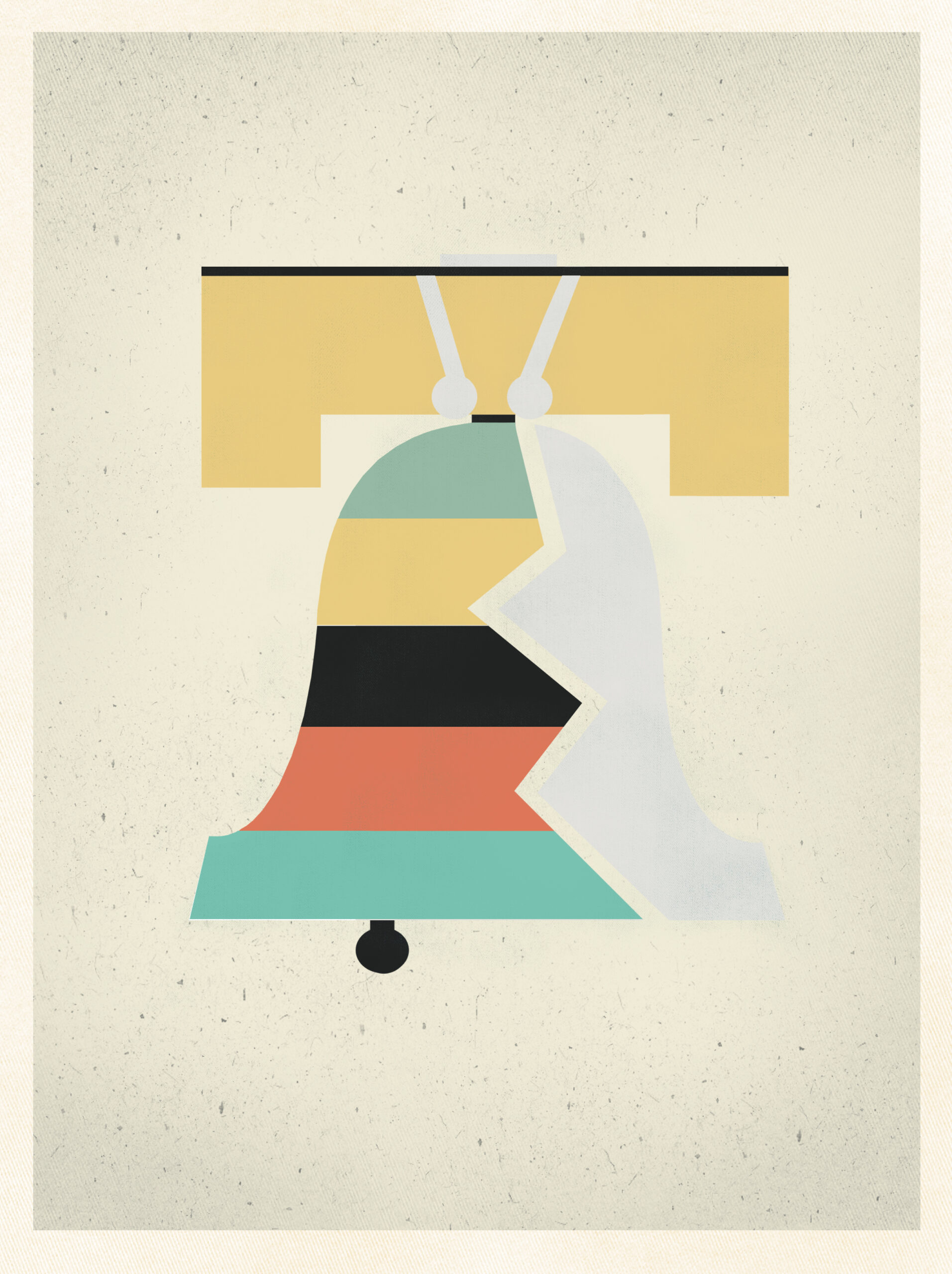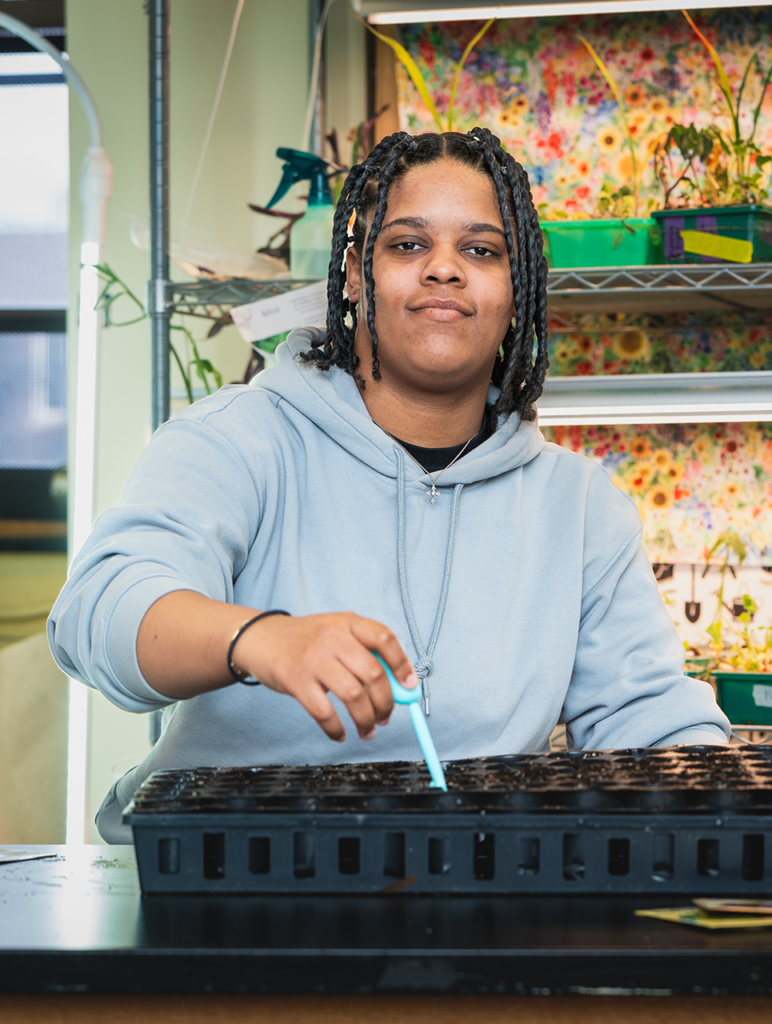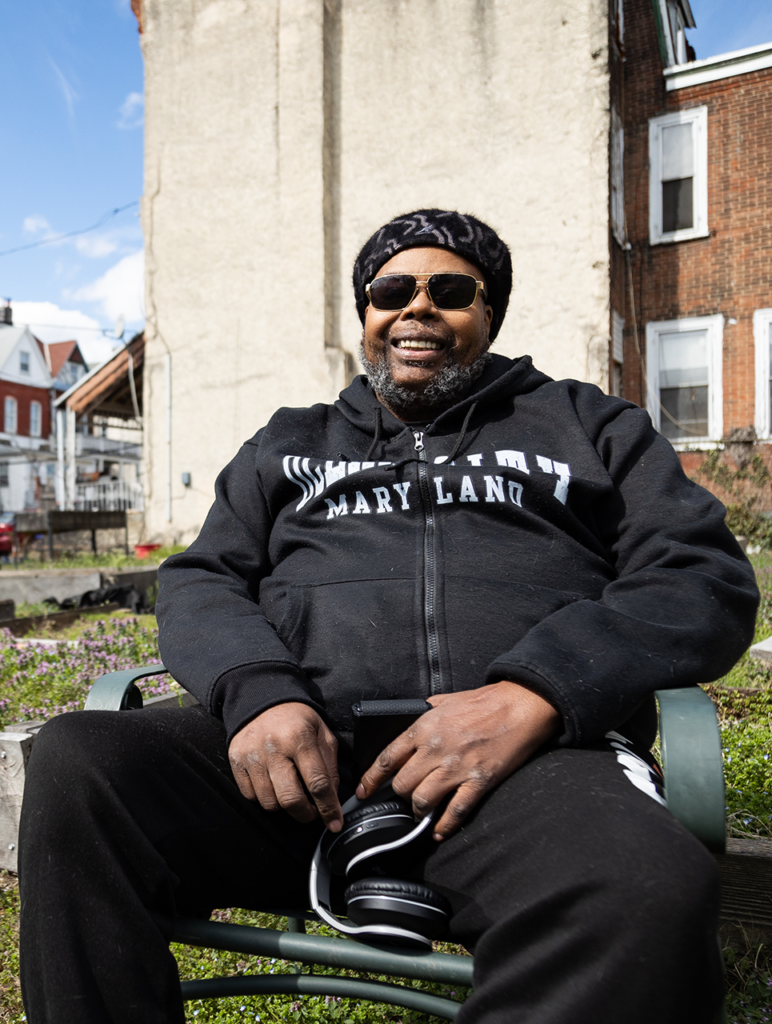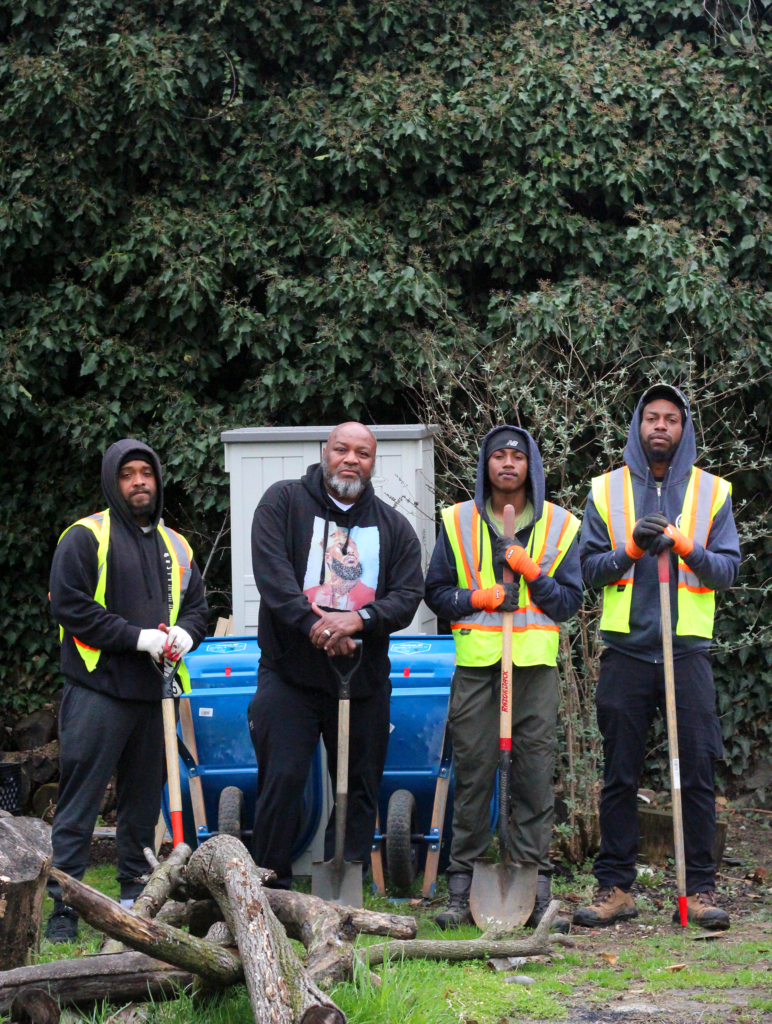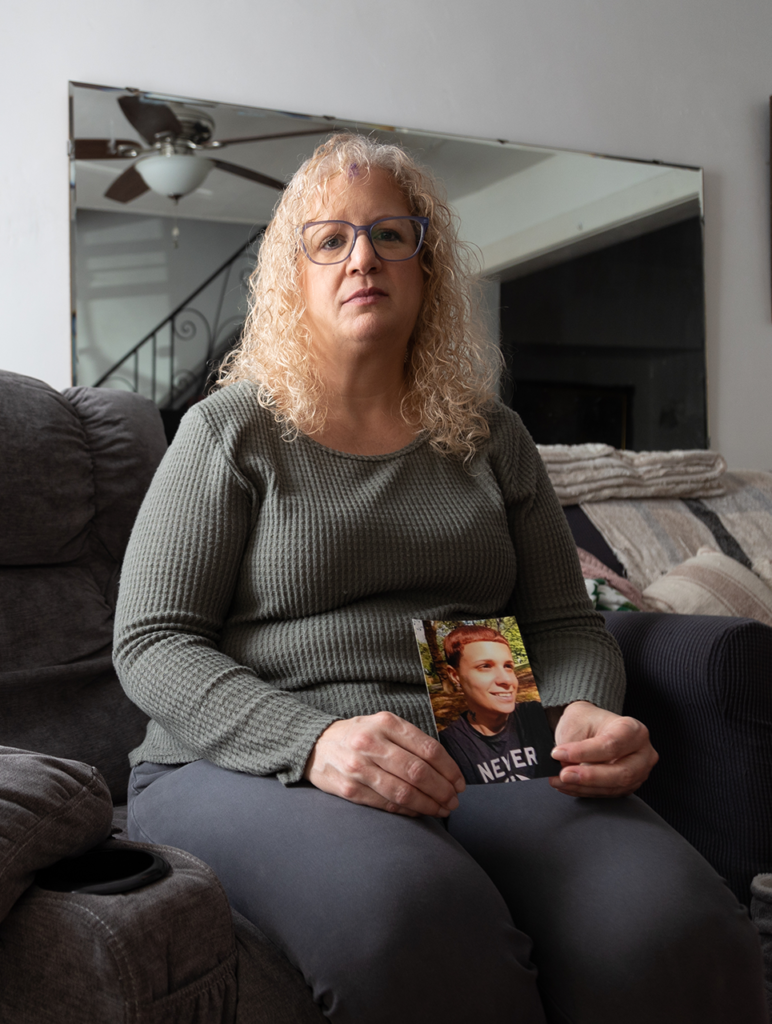Don’t Lose the Thread
by Emily Kovach
It’s a thrill familiar to anyone who’s gone thrift or vintage shopping: your hand skims along a rack packed with garments on hangers, fingers sliding over silk, leather, polyester, wool, lace. And then, without warning or fanfare, there it is: the perfect jean jacket that you’ve always longed for. In the dressing room, you nervously try it on, and yes! It’s like it was expertly stitched just for you, like it’s always been yours. Vintage victory!
Right now, Philadelphia is home to dozens of vintage and thrift shops catering to every taste and price point. Of course, there are still the old-school shops, crammed with polyester dresses, wild ties, faded military fatigues and every wale of corduroy. There are also shops that resemble fancy boutiques, with tightly edited collections and a minimalist vibe. Is motorcycle boho witch chic your thing? There’s a Philly vintage shop for that. Is a flawless 1930s trench coat on your wish list? A 60s letterman jacket? Nearly every neighborhood flaunts at least one great shop where you can excavate something one-of-a-kind, something that has survived for generations, something to add history to your closet.
In addition to the addictive adrenaline rush that comes with this kind of score, there are multiple reasons to shop for previously worn and vintage clothing. One is simple economics. With the exception of antique or high-end designer pieces, most vintage clothes are cheaper than their brand new equivalents, and are usually of much higher quality. Affordability is especially attractive to younger style mavens. Lindsay Fryer, the founder of Cactus Collective, a local fashion-forward, pop-up vintage shop, reflects: “I first started frequenting thrift shops at age 14… I don’t think anything was more than five bucks. The combination of being able to afford stuff with my ice cream scooping income—and the wealth of inspiration that came from hunting through decades-old items—had me completely hooked.”
Often vintage shoppers resist fashion conformity and are wary of having the same clothes as everyone else. Many also experience an almost mystical connection to the past when wearing garments that have survived for decades. Michelle Dewey, owner of Mesh Vintage in South Philly, sums up this spirit of individuality and respect for the past: “A nightmare of mine is to be wearing something that someone else has on. And I think about the story. These pieces have memories and life. Something from H&M has no story… it’s soulless clothes.”
Sue Eggen, the owner of Giant Dwarf, a line of handmade accessories, is a lifelong vintage and thrift devotee. Used clothes, she explains, allow her to define her own singular style. “I never follow fashion rules or trends, so adding used clothing to my wardrobe lets me to mix and match all year, every year,” she says. “My collection of garments, shoes and accessories allows me to express myself without worrying about someone else looking just like me.”
Every vintage shop owner has his or her own outlook and approach to vintage, and their own story to tell, but common threads tie them all together: love of fashion, respect for and fascination with the past, and a strong belief that buying previously worn clothes—whatever the motivation—beats buying new any day.
Mesh Vintage
Affordable vintage for tonight’s party
Michelle Dewey’s vintage obsession began at her very first job, working at Goodwill, where she stockpiled finds for herself. After managing a record shop (“Music and clothes were my whole life,” she says), she sold BMWs for 12 years. Though it was a lucrative gig and she was a nationally ranked salesperson, her love for vintage clothing never subsided. In Spring 2014, it was time for a change. “I was done [with car sales],” she says. “Opening a shop was always my dream, and every day I had off, I’d walk blocks in Philly looking for real estate.”
Dewey, who commutes each day from Delaware, chose East Passyunk Avenue for its vibrant retail scene, and opened in November 2014. Mesh, at once cozy and airy, features racks of men’s and women’s clothing organized by color, which pop against the clean white walls. She keeps her prices low to achieve what she calls “wearable vintage”: items you can put on and wear out dancing that night. In fact, Dewey tries to capture the party spirit in her store: she frequently invites DJs to spin records and stays open late during the Avenue’s Second Saturdays. “We play music loud; it’s fun!” she says. “I want people to engage and have a good time when they’re shopping here.”
meshvintage.com
1820 E. Passyunk Ave.
MON –TUES: Closed; WED–SAT: 12:00–8:00 p.m.;
SUN: 12:00–6:00 p.m.
Wilbur
In living color
The sparkly, vivid clothes on display in the Wilbur Vintage window have been calling to curious passersby long before Fabric Row experienced its resurgence. For the past seven years, Daniel Wilbur has run his eponymous South 4th Street shop, filling the small space with clothes from every era. Some boast designer labels, others no label at all, but one thing unites the store’s aesthetic: fun. “I gravitate toward color, interesting textures and sequins!” he says. “At a lot of newer vintage shops now, it’s all drab flannel and southwestern stuff… It seems like no one likes color, and it’s very strange to me!”
Wilbur is influenced by his studies in art history, the TV shows on the Style Network he watched as a kid, as well as old-school vintage shops in Greenwich Village in New York. “I always wanted to have pretty, colorful things around me,” he says. Wilbur’s reputation as a first-rate shop is owed as much to the store’s charming displays and hidden gems, as toas the owner himself. You’re likely to find him helping a customer discover the perfect frock, de-pilling a sweater while gabbing with a friend or tidying up while ’70s disco pulses from the shop’s speakers. “I just love creating an atmosphere,” Wilbur says.
wilburvintage.blogspot.com
716 S. 4th St.
MON–FRI: 1:00–8:00 p.m; SAT–SUN: 12:00 – 6:00 p.m.
Briar Vintage
A suite of suits
“Menswear doesn’t change—a suit’s a suit,” says David Lochner, managing partner at Briar Vintage in Old City. “What changes is where the buttons stand, the width of the lapels and neckties, and the fullness of the cut.” If not for the copious tattoos and the iPhone in his hand, Lochner himself looks like he might have time-traveled from the 1930s: he’s got on a chambray shirt tucked into high-waisted chinos, wire-framed spectacles and a striped engineer’s cap. He’s been captivated with old clothing since the age of 13, informed by golden era Hollywood, and especially by the 1993 World War II drama Swing Kids. “I wanted to dress like that, listen to that music and punch Nazis in the face,” he says.
In 2010, Lochner was approached by Amanda Saslow, owner of Sazz and a handful of other Philly vintage shops, to open a menswear-only vintage shop. In August 2011, Briar opened, decked out with a Harvard Club-esque brand of masculinity: mounted buck heads, red walls, an American flag, and ragtime on the stereo. On the racks hang all manner of dapper attire from the 1890s to the 1960s, which Lochner and Saslow travel far and wide to source. Men’s fashion, according to Lochner, is all about rediscovery. “Guys today work in these offices; they’re not as hands-on and labor-intensive as their grandfathers were. One way to recapture the past is to dress the way that they did,” he says. “Plus… if it outlas
ted their grandparents, it will last.”
briarvintage.com
62 N. 3rd St.
MON: Closed; TUES–SAT: 11:00 a.m. –7:00 p.m.;
SUN: 12:00– 6:00 p.m.
Two Percent to Glory
Your hunting partner
Sarah Anderson’s personal bio reads like a whirlwind world tour: from Iowan farmlands to Choate Rosemary Hall boarding school, a semester abroad in Italy, college at NYU and then UPenn, multiple laps through the NYC fashion industry, back to Iowa, and then finally landing in Fishtown, where she moved in 2009. Along the way, Anderson collected beautiful old clothing and objects, and rented her first storefront on Frankford Avenue simply as a place to keep everything. Opening the space to the public, she says, just kind of happened: people knocked on the windows and asked to look around. “There is a real sense of community here,” she says of Fishtown. “It reminds me of the Midwest in that way, this loveliness and humility.”
In Two Percent to Glory (the name is inspired by an anti-war quote from Einstein), wares from across the 20th century coexist in thoughtful arrangements, which resist feeling overly curated. For Anderson, connecting the right piece with the right customer is the ultimate goal. “My whole motivation is like, ‘Let’s find it together,’” she says. “It’s a scavenger hunt of physical extensions of your soul.” The next phase of the shop will include her own original designs made with sustainable fabrics and vegetable dyes, as well as a deeper focus on, as she puts it, “tokens of earth and beauty.”
twopercenttoglory.com
2031 Frankford Ave.
MON–TUES: Closed; WED–SAT: 11:00 a.m.–7:00 p.m.;
SUN: 12:00–6:00 p.m.


